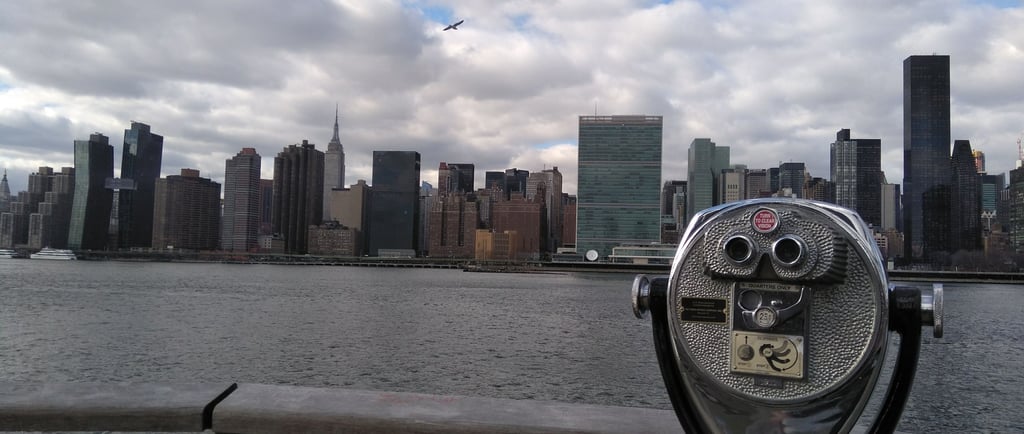ONE EXPENSIVE CAIPIRINHA
ALM No.75, May 2025
SHORT STORIES


Chris and his wife Anna entered a bar that had a great view of the bay, in line with the glamours promised by the saleslady at the port. What she didn’t mention was the fact that it was the top of a hill filled with shacks, dilapidated buildings, one built over the other, filled with alleys, and wandering people. It looked like war zone. They were on a Rio de Janeiro ghetto, a favela.
“Now do you agree with me, that this free tasting of caipirinha was a scam?” asked Anna, scared by the setting.
“I told you, they won’t fool me. I’m a lawyer,” said Chris. “What’s with the site? If that’s how the locals do it, what could go wrong?”
“Here you go again with that local thing,” she said. “Sometimes the tourist spot, IS THE BEST SPOT!” she said, losing patience after a whole cruise trip hearing the same thing. “Let’s get this over with.”
They sat on plastic chairs and became overwhelmed with its shabbiness, as the drinks started coming.
They learned that caipirinha was a versatile drink made of either vodka or cachaça, a type of Brazilian moonshine, some crushed fruit, sugar, and ice. Waiters served them lime caipirinha, strawberry caipirinha, and pineapple caipirinha. The strong spirit tasted more like gasoline, but the sweetness of the fruits and loads of sugar made them drinkable.
As the waiter was bringing the fourth round of drinks, Anna said, “No more,” feeling more than tipsy.
Chris grudgingly agreed, having been the one that insisted on going there.
“How much to settle the tip?” he asked the waiter, who directed him to a cashier, as he didn’t speak English. He then went to a counter to speak to a fat and sweaty man, picking his teeth, who seemed like the owner.
“We must go. How much is the tip, and where is our van?” asked Chris.
“A tippy is a thousand dollars, five hundred pra cada, each” said the man, in bad English.
“What?” he said, perplexed. “I was told it would be a tasting, all free, just a small tip.”
“Well, you got it wrong, gringo. No complaints and the van is five hundred more, but the driver caiu fora, went away,” the bartender said, grinning. “You better pay, or I don’t pay for the protection, and the drug dealers, os traficantes, that run the favela will come to collect it from you.” With that, he pointed at two shirtless men on the rooftop across the street, who both carried rifles.
In that moment he realized the danger they were in, paid the thousand dollars, and rushed out with Anna.
They walked frightened down the sidewalk. It was a ragged path and seemed like an endless maze on the hills.
Going downwards, they are making their way to the main street, trying not to reveal themselves as tourists, gringos, which was no easy task. Chris, wearing an NYU golf shirt, and Anna with her red hair, and sunburned skin, both with their Brazil Cruise Line bracelets, seemed as American as it could be.
“We are saved,” said Anna, as she spotted a cab on the other side of the street.
Entering the car, she looked at the clock in the dash.
“The ship leaves in thirty minutes,” Anna said, desperately.
He sped through the streets, all while lecturing them that tourists should stay in safe places. Once they arrived, the taximeter said thirty reais, but the driver said, “It’s in dollars for you.”
Just wanting this dreadful experience to end, Anna paid with a fifty-dollar bill.
“That’s settled. I got no change,” said the driver shamelessly.
Seeing that they were once again being taken advantage of, but noticing that it was 4:55 p.m., they rushed out with all the speed that their flip-flops allowed.
“We are not going to make it!” said Anna.
“Faster, we must try!” said Chris.
As the pair got to where their ship used to be, they arrived just in time to see the vessel sail off blowing its horn. It left on time.
“That was one expensive caipirinha,” said Anna.
“I’ll always stay on the tourist spots from now on,” said Chris.
They started walking back on the pier, avoiding the frightening thought that they would have to find a way to get to the ship’s destination. The cariocas would eat them alive.
Nickolas Peters is a creator who is passionate about storytelling through writing. Coming from the deep south of Brazil and searching for the American dream in Florida brings a unique perspective to his work.

